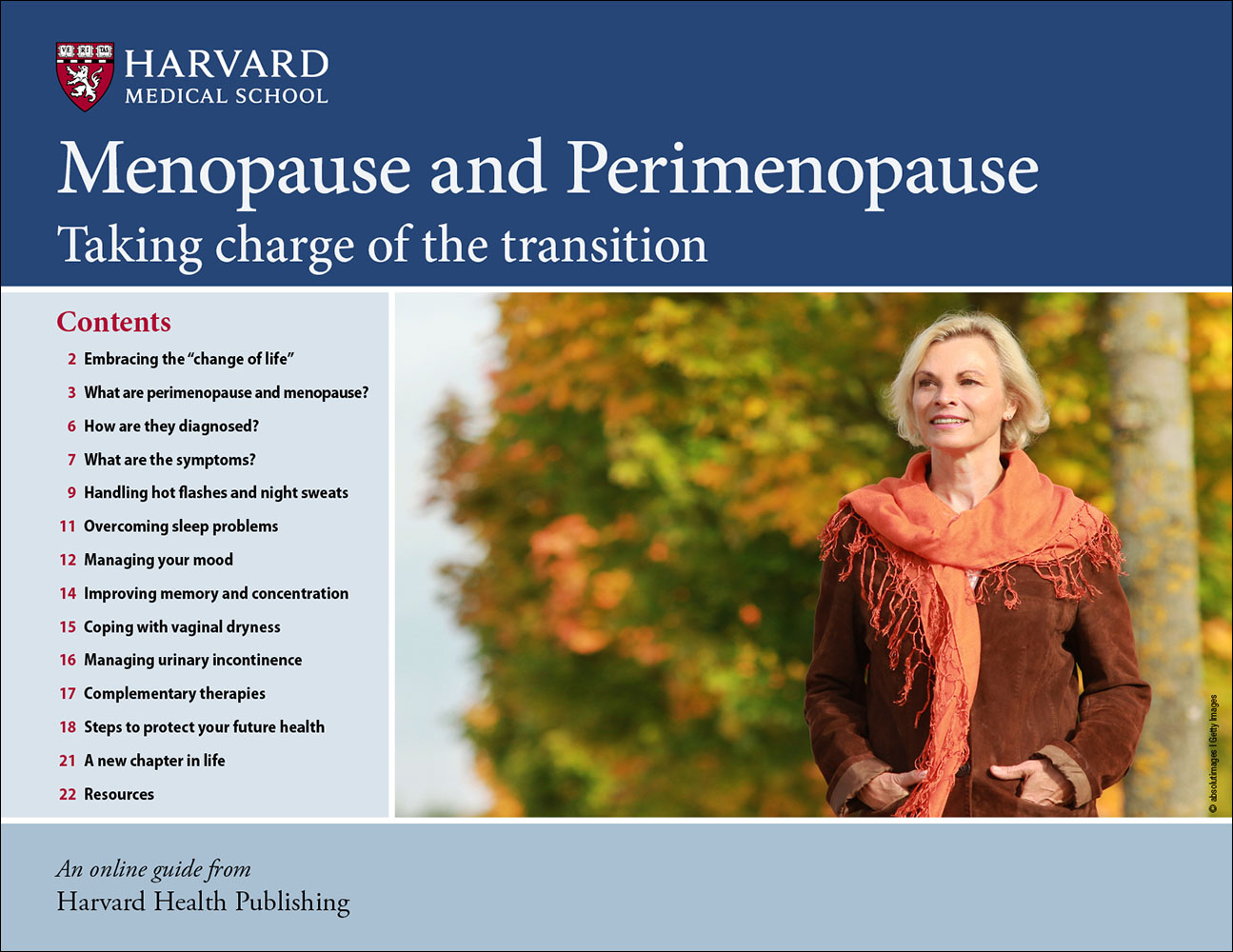How can I reduce lasting menopausal symptoms?
Ask the doctors

Q. I had my last menstrual period four years ago, but I'm still having hot flashes and night sweats. Is this normal, and is there anything other than hormones that might alleviate my symptoms?
A. Unfortunately, while menopausal symptoms are short-lived for many women, others can have symptoms for years after their menstrual cycles have stopped. These may include heart palpitations, vaginal dryness, night sweats, hot flashes, sleep disruptions, and mood disorders, such as depression and anxiety.
There are some nonhormonal approaches that might help. Some of the best options for hot flashes and night sweats are those that help keep you cool. These include dressing in layers, so you can quickly remove clothing to adjust your body temperature; keeping a small fan nearby that can be flipped on as needed; using cool-water compresses on your skin; keeping your bedroom at a lower temperature at night; and wearing light clothing to bed (ideally made of fabrics designed to wick away moisture). In addition, try to get regular exercise. It's been shown to reduce menopausal symptoms over all, and it may help to improve your sleep quality. Also, be sure to speak with your doctor. She may be able to offer you some additional treatment options and can also rule out other conditions that might be causing the problems you are experiencing.
Image: © yacobchuk/Getty Images
About the Authors

Toni Golen, MD, Editor in Chief, Harvard Women's Health Watch; Editorial Advisory Board Member, Harvard Health Publishing; Contributor

Hope Ricciotti, MD, Editor at Large, Harvard Women's Health Watch
Disclaimer:
As a service to our readers, Harvard Health Publishing provides access to our library of archived content. Please note the date of last review or update on all articles.
No content on this site, regardless of date, should ever be used as a substitute for direct medical advice from your doctor or other qualified clinician.













